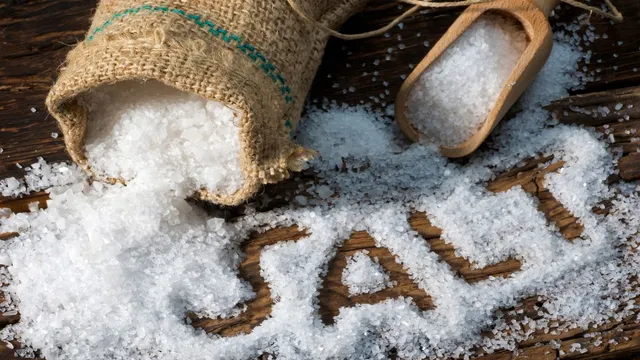- By Iram Hussain
- Mon, 07 Oct 2024 05:18 PM (IST)
- Source:JND
Salt, a staple kitchen ingredient enhances flavour in meals but its excessive consumption poses several health risks. While a certain amount of salt is essential for bodily functions, overindulgence can lead to negative consequences. The delicate balance between adequate and excessive salt intake is crucial.
Awareness of sodium content in food and mindful sprinkling can mitigate potential harm. Moderation is key as excessive salt consumption can have undesirable effects on overall well-being. Striking a balance ensures salt remains a valuable seasoning rather than a dietary danger. Here are five best reasons that will help you to limit salt intake from your daily diet.
Reasons To Limit Salt Intake In Your Diet
Maintains Blood Pressure Levels
Limiting salt intake helps keep blood pressure in check by reducing fluid retention and blood vessel constriction. Excessive sodium increases blood volume while straining vessels and heart. Lowering its intake can significantly reduce the risk of hypertension by maintaining blood pressure levels.
Improves Cardiovascular Health
Less consumption of salt helps to prevent heart disease by reducing blood pressure and fluid retention. High sodium increases cardiovascular risk while moderate reduction lowers hypertension, heart failure and stroke risk.
-1728301391380.jpeg)
Excessive salt intake leads to high blood pressure (Image Credits: Canva)
Supports Kidney Function
Excessive sodium strains kidneys, potentially leading to damage or disease. Lowering salt intake helps kidneys to filter waste efficiently while reducing proteinuria and slowing disease progression. Healthy sodium levels support kidney health and reduce the risk of chronic kidney diseases.
Improves Digestion
Heavy amount of sodium disrupts gut balance, leading to discomfort and swelling. Reduced salt consumption helps regulate fluid balance while alleviating bloating and promoting a flatter stomach. A low-sodium diet also supports healthy gut bacteria, enhancing overall digestive well-being and comfort.
Bone Health
High sodium increases urinary calcium excretion, thereby leading to weak bones. Lowering salt consumption helps retain calcium, essential for bone density. This reduces the risk of osteoporosis and fracture, particularly in older adults. A balanced and low-sodium diet supports stronger bones and overall skeletal well-being.

